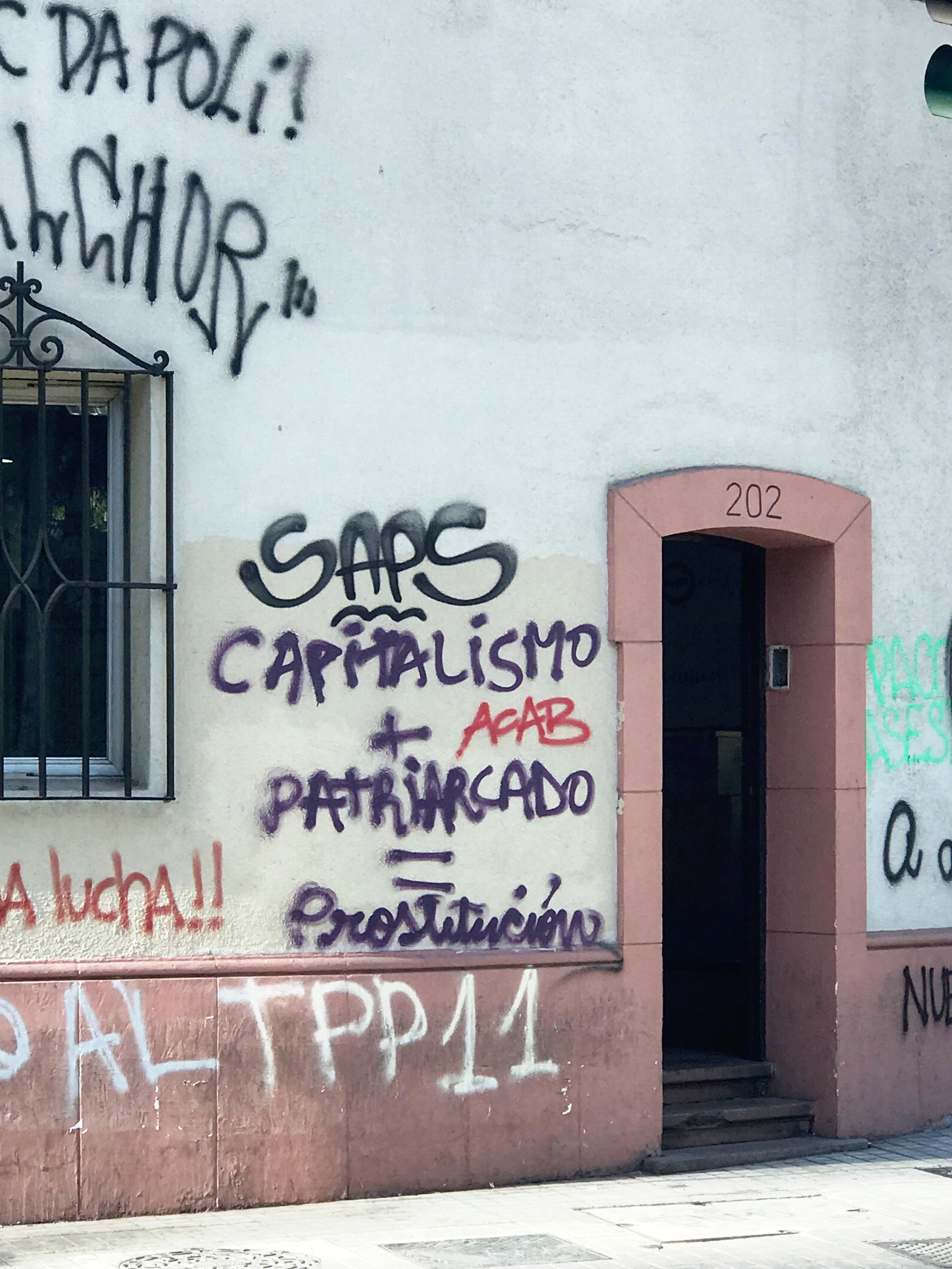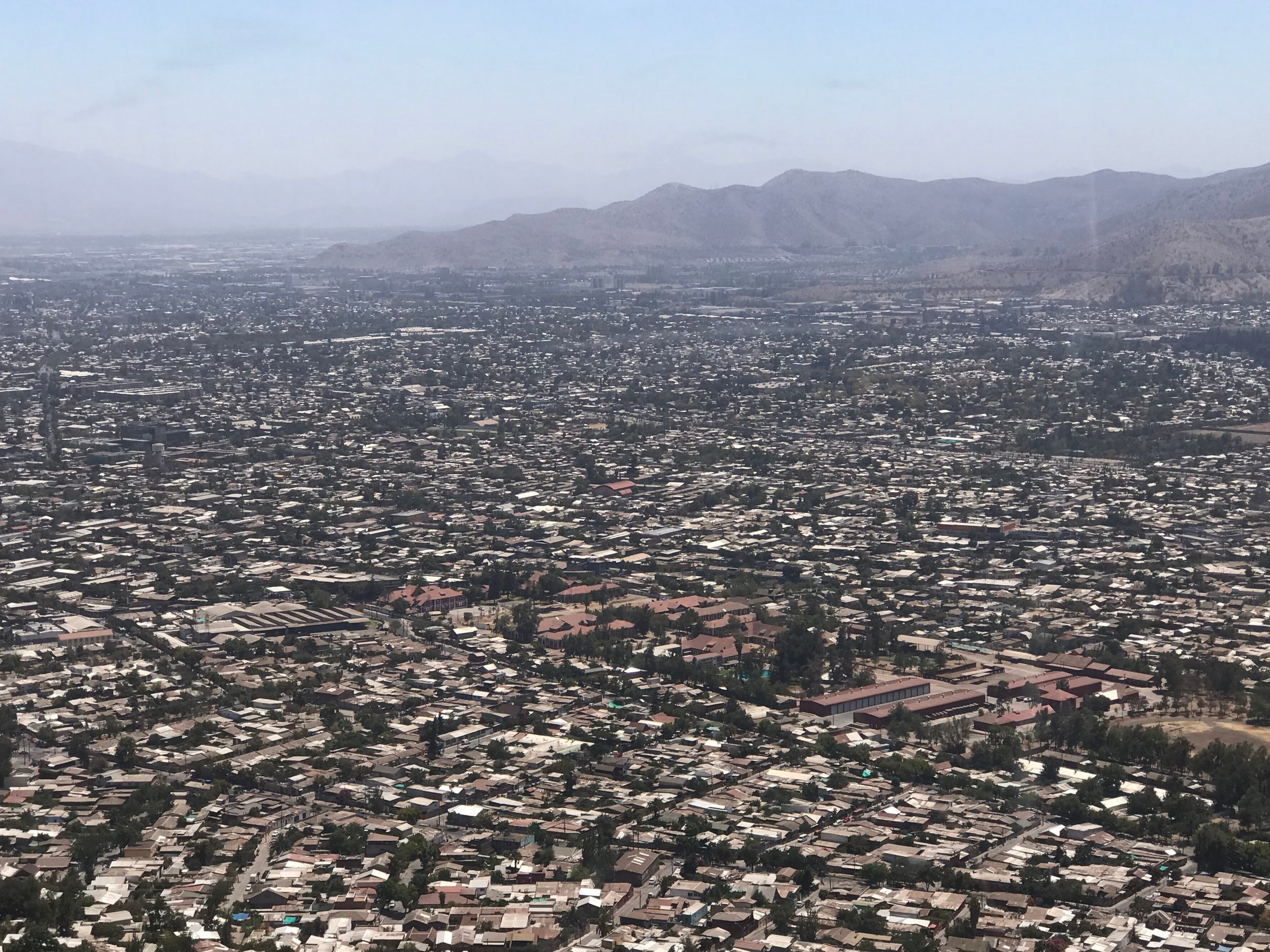Insanetiago
by Dominic Hilton
November 2025
“The riot police started firing tear gas from their guns.” Dominic Hilton remembers an ill-fated city break he took to Santiago, a few weeks before the start of the global pandemic.
Once a month, usually on Tuesdays, Argentine communists invade my barrio in Buenos Aires. They tend to rock up around lunchtime, metronomically beating drums and tooting discordant trumpets. Riot police wielding shotguns spill out of meat wagons into the elegant plazas and civilian traffic is brought to a heated standstill. The marchers brandish blood-red banners as wide as the six-lane boulevards, on which a whiskery Karl Marx is depicted alongside an unshaven “Che” Guevara and a moustachioed Joseph Stalin, all three apparently beset with haemorrhoids.
Watching the chaos from my balcony, I always think back to an ill-fated city break my girlfriend and I once took to neighbouring Chile. I’d never been to Santiago before and was keen to visit a place everyone in Buenos Aires insisted was massively boring, hideously commercial and utterly soulless.
“I mean, how boring can a capital city really be?” I asked my friend Benny, who was Latin America correspondent for the Financial Times.
“Boring?” He gave me a funny look. “That’s not the word I’d currently use.”
When I mentioned I’d booked a couple of last-minute seats on a KLM flight from Aeroparque, Benny began laughing at me.
“Have you completely lost your marbles? Well, good luck. I’ll be very interested to hear your thoughts. Y’know… when you get back.”
Soaring westwards over the Andes, I read up on what to expect. The in-flight magazine touted Santiago’s “ultramodern cultural centres,” “brand-new parks” and “high-rise glitz”. But I got distracted by the promise of top-notch cuisine, such as a popular dessert known as Calzones Rotos, which means “Ripped Knickers”. Now there, I thought to myself, is something I’ve always wanted to eat.
In the car from the airport, I stared out of the backseat window at the strange new city, unsure if I was hallucinating. Either somebody on the plane had spiked my beer, or all of the buildings—old, new and everything in between—were plastered twelve feet high with layer upon layer of brilliant graffiti. Wherever I looked, the words “ESTADO ASESINO” shot back at me. Likewise, the word “NAZI”, more often than not followed by the word “SCUM”. The hammer and sickle had been stamped numerous times on every wall, as had the universal symbol for anarchy. “Holy shithole,” I said. “We’re in Gotham City.”
Catherine was gazing out of the other window, lost in her own thoughts. “It looks like God reached down from Heaven with a magic marker,” she said quietly. “What’s… going on here?”
I leaned forward to ask our driver. His eyes were narrow and piqued in the rear-view mirror. “Problemas,” he growled, slamming his palm against the steering wheel.
“Troubles,” I explained to Catherine, unnecessarily.
In hindsight, we should have done a little homework. For several months, Chile had been in the grip of (what was officially being referred to as) a “social outburst”. Our boutique hotel was located in Santiago’s bohemian quarter, a few vandalised doors away from the focal point of the city’s riots. Skidding up to the kerb, the driver flung our bags onto the sidewalk, flashed a thumbs up in the direction of the reception desk, dove back inside his car, and sped away.
“Are you here to cover the riots?” the concierge asked after buzzing us into the lofty, glass-fronted lobby. We told him no and there came a long and uncomfortable pause. “Well,” he eventually said, “just don’t go outside after sunset and you’ll probably be fine.”
Seizing our passports, he talked us through the hotel’s elaborate, biometric security system. “It’s the only way to enter the building,” he explained, despite having just let us in. “Last month, activists smashed through our windows and tried to burn the place down.”
Catherine gave a sigh and vanished upstairs to our room. I sank into one of the lobby’s designer armchairs, sipping burnt coffee as I admired the bounty of hip native art covering the walls. After several minutes, I said, “What are the riots about?”
The concierge glanced up from behind the desk. His hair was cropped close to his broad head, which made him look like a meerkat poking its head out of a burrow. He gave my question a good deal of thought, before saying in an unsteady voice, “Elitism.”
I nodded slowly, trying my best not to glance around the place and draw any unhelpful conclusions.
“Many people have died so far,” he added.
My eyebrows shot upwards. “How many?”
But Catherine stepped out of the elevator and I never got an answer.
“Lunch?” she said, smoothing down her dress. “I know a place.”
I climbed out of my seat to follow her, and she pressed her thumb to a sensor, letting us out into the street.
“Have a good day!” the concierge cried after us in what I felt was an unnecessarily sarcastic tone of voice.
We ate fried fish downtown, at a café con piernas, where the waitresses were all scantily clad, showing off their ballooning breasts and bulging behinds to the assorted businessmen in lunch meetings. “These cafés are a tradition in Chile,” Catherine said, reading from a guidebook as our server, Carla, leaned precariously over our table on her porn star heels. I glanced around, feeling strangely dislocated. Everyone else was wearing a suit and tie, employed in professional discussion.
“What are all these men doing?” I asked after our food arrived. “I mean, they don’t appear to be noticing the waitresses, so why even bother coming to a café con piernas? I don’t get it at all.”
Catherine licked the grease from her long fingers. She said nothing.
After lunch, we strolled towards a landscaped hill in the middle of the city and were assaulted by three brain-fried beggars who tried to snatch Catherine’s bag. She fought them off easily, kicking and smacking, and they staggered away like zombies in search of other, more helpless victims. I turned to face the National Archives building, where a filthy, bearded tramp was sprawled half-naked on the neoclassical steps, gawking wild-eyed at Catherine, masturbating. I said nothing and we moved along, climbing Cerro Santa Luciá to admire the views of the city and speak favourably of its desert-dry heat.
“It’s more pleasant than Buenos Aires, don’t you think?” Catherine said. “The weather, I mean.”
I nodded supportively.
We passed the afternoon mooching around, stopping every so often for thick black coffee and rose petal ice cream. When our legs began to wobble, we hopped on the Metro, back to our hotel. I’d learned that the fare increase on the city’s Metro network was the original trigger for the wave of violent unrest, resulting in several stations being torched and destroyed. Now, dozy and hot, we slouched with our fellow passengers in the carriage, watching a young man dressed up as “Che” Guevara read aloud from The Communist Manifesto. At the juicier parts, he let go of the handrail to punch his fist in the air. There were polite scatterings of applause.
The “Che” impersonator made one last plea for revolution, alighting at our stop with a spring in his step. We were shoulder-to-shoulder now. I told him I’d enjoyed his reading and he offered me a little salute, saying, “Thank you very much!” Then his eyes took a long walk over Catherine. “Where are you from?”
“Argentina,” Catherine said, which left him thoroughly confused.
Outside the station, thousands of his comrades-in-arms were gathering excitedly for that evening’s scheduled showdown with the security forces. The air was already thick with various kinds of smoke and the pavements were littered with vendors selling woven jewellery, hokey pastel sketches, and plastic bottles of lukewarm Coca-Cola.
Catherine stopped outside a tobacconist, examining our sunlit reflections in the store’s dark window. “Do you think we could pass as communist revolutionaries?”
“Sure,” I lied.
“If we blend in, maybe they’ll spare us,” she said, adjusting her Longchamp shoulder bag. I remember thinking she’d never sounded so sweet, so hopelessly naive. She yawned like a lioness, then danced off up the street, leaving me to write down what she’d just said in my notebook.
*
“Where are you going?” the concierge screeched when we headed back out later for dinner, freshly showered. “It’s not safe! Please!!”
Catherine gave him the death stare I’d seen Liam Neeson give Russian mobsters in his improbable revenge films. “We’ll sprint,” she said, pirouetting towards the exit, suddenly more Audrey Hepburn than action hero.
She’d found us a pricey little restobar nestled down a narrow, cobbled street. We picked at small plates of seafood, sampling great amounts of Petite Sirah and Riesling, presented with ceremonious show by a dandily-dressed sommelier, while doing our level best to ignore the ominous sound of trouble erupting a block or so away. After settling the bill, we ducked into a rougher, more traditional bar famous for its pisco sours. I was lifting the foamy cocktail to my lips, when I noticed Catherine staring fearfully over my shoulder. Turning around, I spotted two masked anarchists dressed head-to-toe in black, brandishing aluminium baseball bats. Catherine reached for my hand across our candlelit table, but the anarchists signalled for the maître d’. Speaking in courteous voices, they booked themselves a table “for later”, before peacefully exiting the premises to re-join the riots.
“You see?” I said, when it was our turn to leave. “It’s not so bad, all this.”
Arm-in-arm, we turned the dimly lit street corner towards the rear entrance of our hotel, and I changed my mind. We stood for a moment or two, silent and staring. The normally vibrant shopfronts had been transformed into vacant black holes. Twinkling shards of glass coated the pavements like snow.
“Piggy-back?” I suggested.
Catherine shook her head, reminding me about my dodgy neck, so we picked our way across the road like a pair of wading storks.
Inexplicably, our hotel had been spared. The concierge clasped his hands together in mock prayer when we let ourselves in, saying something in Spanish which amounted to: “I pleaded with the bastards: Not again!” Then he inquired if we’d had a good evening.
Catherine blew out some air, pulling me towards the elevator.
“Wake us up if the building’s on fire,” I shouted over my shoulder.
The riots continued through the night. We slept fitfully. The next morning, we breakfasted on espressos before trooping past the defaced statues and demolished shopfronts to La Chascona, the magnificent, quirky home of the great Nobel-winning poet-diplomat and politician Pablo Neruda. Neruda, a communist, had the house built to spend more quality time with his mistress. The audio guide invited us to regard the various portraits of his secret lover, pointing out “Things that were important to him, like the hammer and sickle in Matilde’s hair”. As I leaned forwards to admire the brushwork, the soothing voice in my ear described Mao’s Cultural Revolution as having indulged in one or two “excesses”.
Catherine bought a handsome book of Neruda’s collected poems in La Chascona’s attractive gift shop, after which a funicular carried us part of the way up Cerro San Cristóbal. From a landscaped platform puzzlingly full of jugglers and balloon vendors, we walked to the peak, 300 metres above the city, to sit in an outdoor chapel in the shadow of a gigantic alabaster statue of the Immaculate Conception. The sun was white hot and welcome. Cheesy contemporary worship music blurted out of loudspeakers and the whole thing felt about as holy as the snack stands lining the perimeter, hawking cigarettes, ice cream and hot dogs.
But the views of the city, nestled in a valley, the surrounding Andes mountains resembling a tsunami, were almost worth the altitude sickness. We squinted out towards the glimmering Gran Torre Santiago, the largest skyscraper in Latin America, boasting the continent’s largest shopping mall. Our guidebook described the monument as a symbol of Chile’s economic triumphs. Also, its soulless commercialism, dehumanising consumerism and shocking wealth inequality.
“It’s a popular suicide spot,” Catherine said, reading an article she’d pulled up on her phone. “Inside the tower, there’s a six-storey drop, from which people leap to their deaths. They splat on the shopping mall floor, but the mall has a policy of never closing, so shoppers continue to shop, with the corpse just lying there.”
“Come off it.”
“That’s what it says! Also, that it’s owned by a German family comprised of former high-ranking Nazis with ties to Nazi-cult paedophiles who ran torture chambers and chemical weapons labs during the Pinochet dictatorship.”
I took a sip of water from a plastic bottle. “That can’t be true—can it?”
We rode a cable car back down the hill, lunching on lightly seared tuna and octopus at an alfresco restaurant bordered by Japanese fishponds, before detouring through private, gated neighbourhoods on our way to “Sanhattan”, the financial district, where the shopping mall was located.
“Phoenix, Arizona,” I said, as we entered through its brilliant glass facade. “I knew this place reminded me of somewhere.”
“Phoenix,” Catherine said. “Only, with anti-capitalist riots.”
“And octopus,” I reminded her.
Inside, the mall was air-conditioned and awful. Catherine vanished into an H&M store the size of a space shuttle hangar. I loitered in the spotlessly clean forecourt, gazing expectantly up towards the sixth level, waiting for someone to jump, and wondering how I’d react if they did.
I’d been standing there for almost an hour when Catherine appeared at my shoulder, laden with shopping bags full of clothes she can’t buy in Argentina, thanks to all the import restrictions. “You’re hoping some poor, blighted soul will commit suicide, aren’t you?”
I shook my head. “Of course not. What do you take me for?”
Her eyes lifted upwards. “Horrid. Absolutely horrid.”
“What is?” I asked, but she just walked away.
The sun was low now, the streets buzzing again with demonstrators “clearly enjoying themselves,” in Catherine’s words. We rested our feet outside a pretty corner café as a man carrying a black Antifa flag bought himself a Coke from a nearby kiosk. He’d used Tipp-Ex to write the words “ALL COPS ARE CUNTS” on his rucksack, in English. He was also wearing a gas mask, which made me wonder how he was going to drink his Coke.
On a winding side street across the way, hundreds of young women in 1940s Land Girl headscarves sat cross-legged on the cobblestones, giving tarot readings. “I don’t get it,” Catherine said, in a drowsy sort of way. “What’s the connection between tarot cards and Marxism?” She looked at me from behind her sunglasses. “Was Karl Marx obsessed with the occult, like Hitler in that Indiana Jones film?”
I laughed. “I don’t think so. Maybe.”
A large group of men jostled noisily past. They were dressed in identical cosplay Joker costumes: red suits, mustard waistcoats and snot-coloured shirts with huge pointy collars. Their greasy hair was slicked back and dyed ectoplasm green, while their faces had been painted in a flaking clown white. Wicked ruby smiles stretched from ear to ear and their eyes were badly drawn blue diamonds, crowned by childish little red brows. We watched them carefully over the tops of our iced coffees. Catherine smiled when they pulled out their iPhones to film the revolutionary scenes around them. Then she laughed when they began eagerly uploading the videos to Instagram.
That night, we went out for dinner again, listening like before to the ferocious clashes a block or two away from our table. “Will you just look at us?” Catherine said, shaking her head.
I grinned at her. “Nibbling while Santiago burns.”
Our luck ran out after we’d paid the check, when we were very nearly mown down by a dozen or so armoured trucks hurtling down the street. They came to a loud and sudden stop outside our hotel. A great roar sounded from somewhere in the blackness at the end of the street, towards which the police started firing tear gas from their guns.
Instinctively, Catherine and I got low to the ground, scampering between the parked cars. The riot police yelled heatedly at us from behind masks, but I couldn’t make out what they were trying to say. “¡Somos turistas!” I screamed back. By the time we reached the fingerprint scanner, Catherine was coughing, wheezing, struggling to breathe. My eyes were crying and burning. We got the door open and fell through it into a snack area filled with a tantalising assortment of fresh fruit.
“Water!” Catherine squealed.
“Don’t rub your eyes!”
We found some bottled spring water in a mini fridge and poured it over our faces. Catherine started to rub her skin madly, pulling down the front of her floral dress. The concierge popped up from behind his desk at the front of the lobby. “Is everything OK?” he asked, blinking at the sight of a topless Catherine. “How was your evening?”
A “grrr” like noise came from Catherine’s mouth. She clawed at her dress before heading back to our room, where she took a twenty-minute shower.
“I miss Buenos Aires,” she said to me the next morning over a plate of scrambled eggs she hadn’t touched. “I really want to get back.”
I felt the same way. We caught a flight over the yawning Pampas that afternoon. Due to our late booking, we were unable to get two seats together. I sat alongside two retired Californians with walrus mustachios, who told me they were on “A 48-day whirlwind tour of Latin America” and that they were “Never coming back!”
Catherine was a few rows back, sitting next to a skinny man dressed in full Hare Khrishna garb. He was clutching a bulky spiritual book of some kind, and took a big shine to Catherine, letting her know that his grandfather was the Cuban ambassador to Washington D.C., and that he was currently travelling between two of his eight houses around the world.
“Well, lucky you,” I heard her say.
The man exhaled melodramatically. “The thing is,” he said, as if suddenly struck by a thought of immeasurable brilliance and originality, “love is the only answer.”
I was twisted around in my chair, eavesdropping. Catherine’s big blue eyes lifted from her book of Neruda poems. She stared at me. I stared back, and for one peaceful moment, we were together again in our secret world, saying all the things we needed to say by not saying anything at all.
A flight attendant hovered in the aisle, wiping her hands with a towelette. She too was eavesdropping, but everything she had to say was said out loud in a guttural, smoker’s voice. “Me?” she began, even though nobody had solicited her opinion about anything whatsoever. “I simply adore Havana. The crumbling buildings. The old cars. I’ve been there too many times to count.” She let out a long, dubious sigh, mimicking the world-weariness of the Ambassador’s rich grandson. “I just pray the city never changes. Really, I mean it. The worst thing would be for planeloads of tourists to show up and ruin it—you know, like they do everywhere else.”
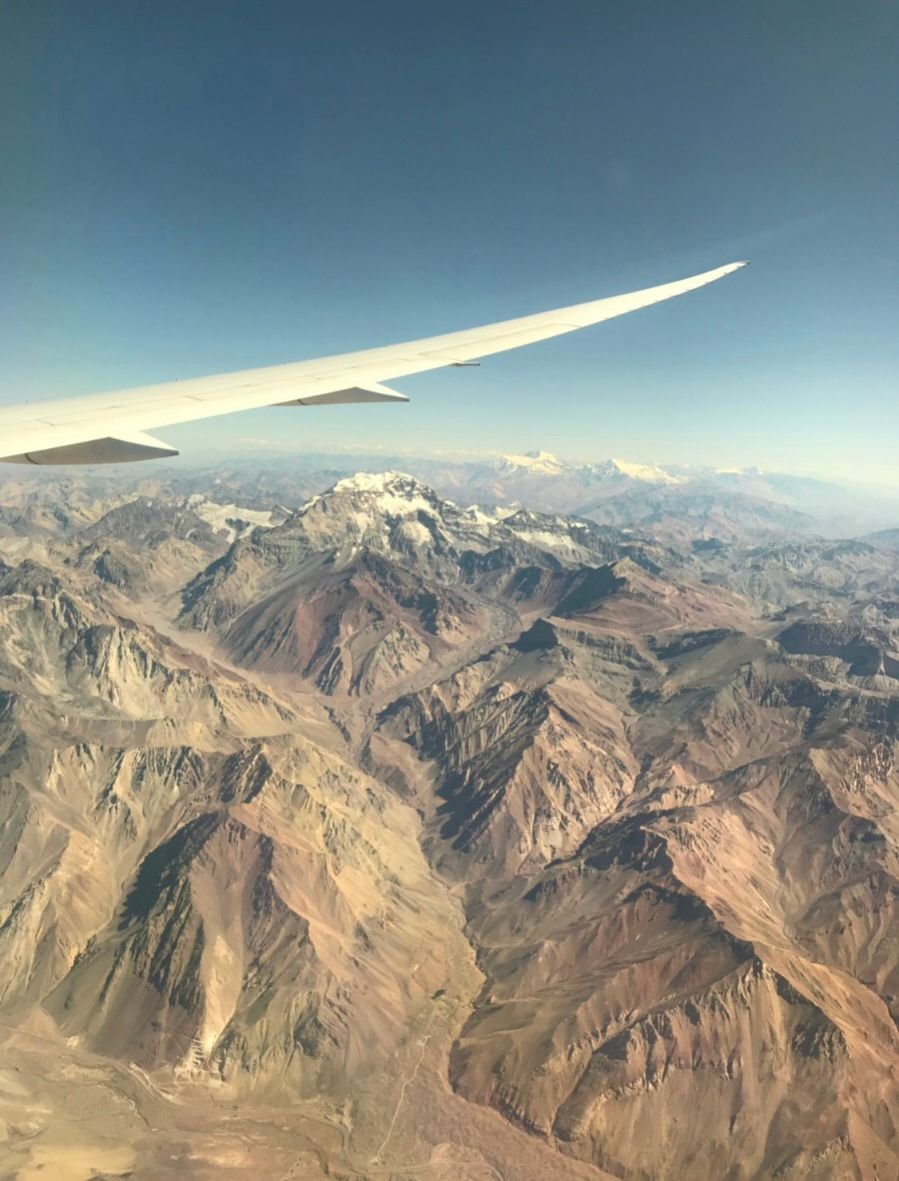
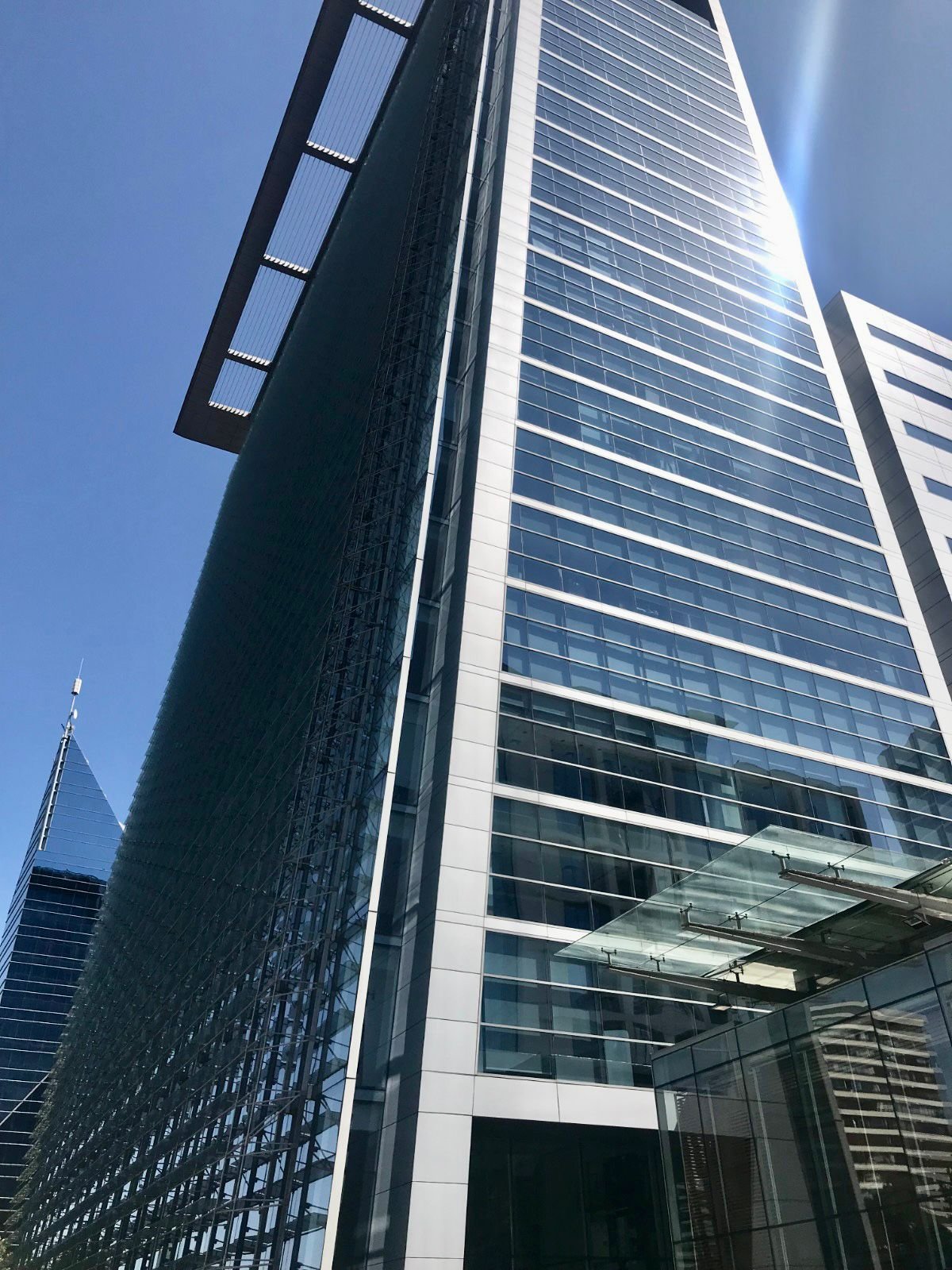
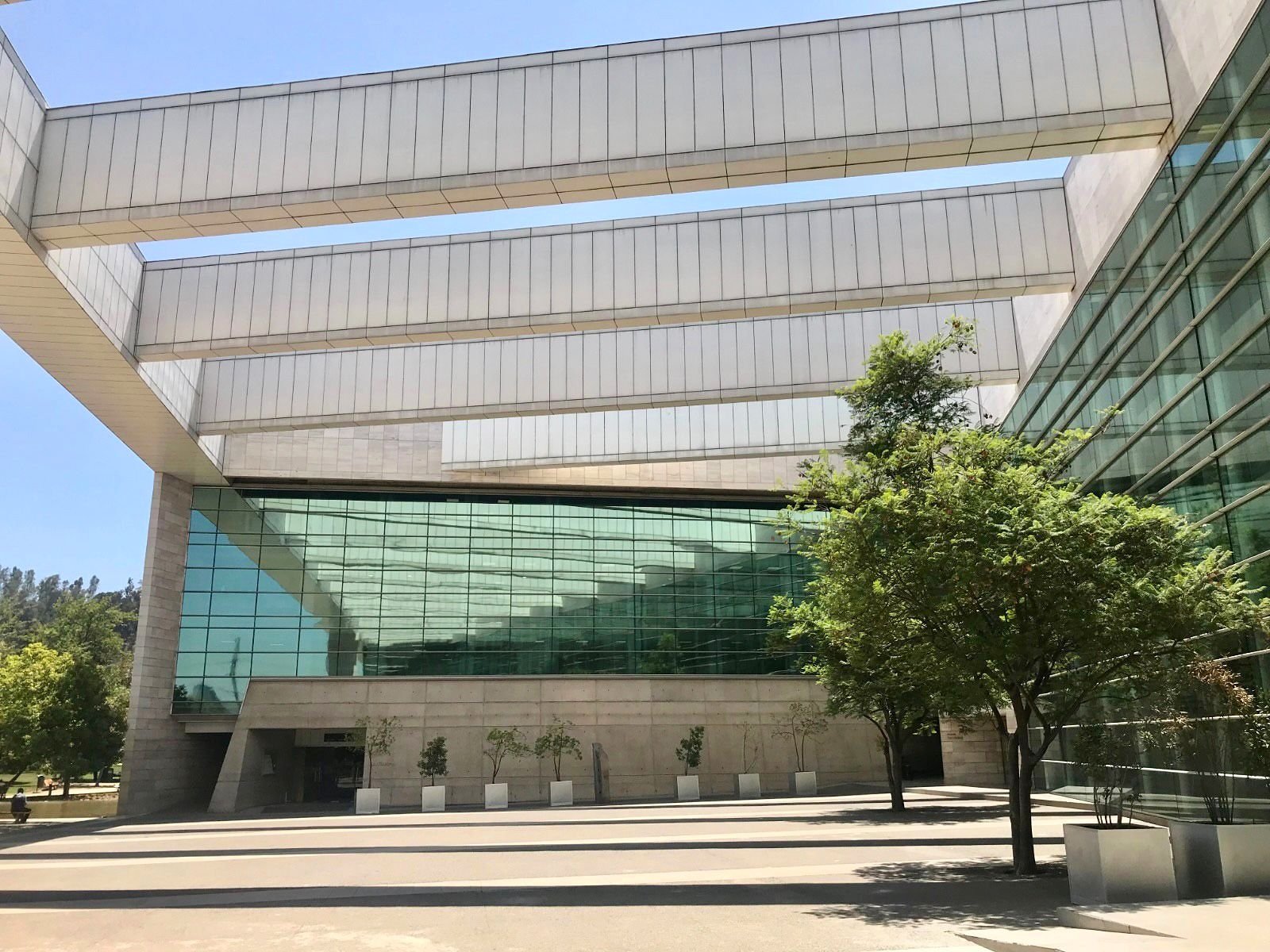
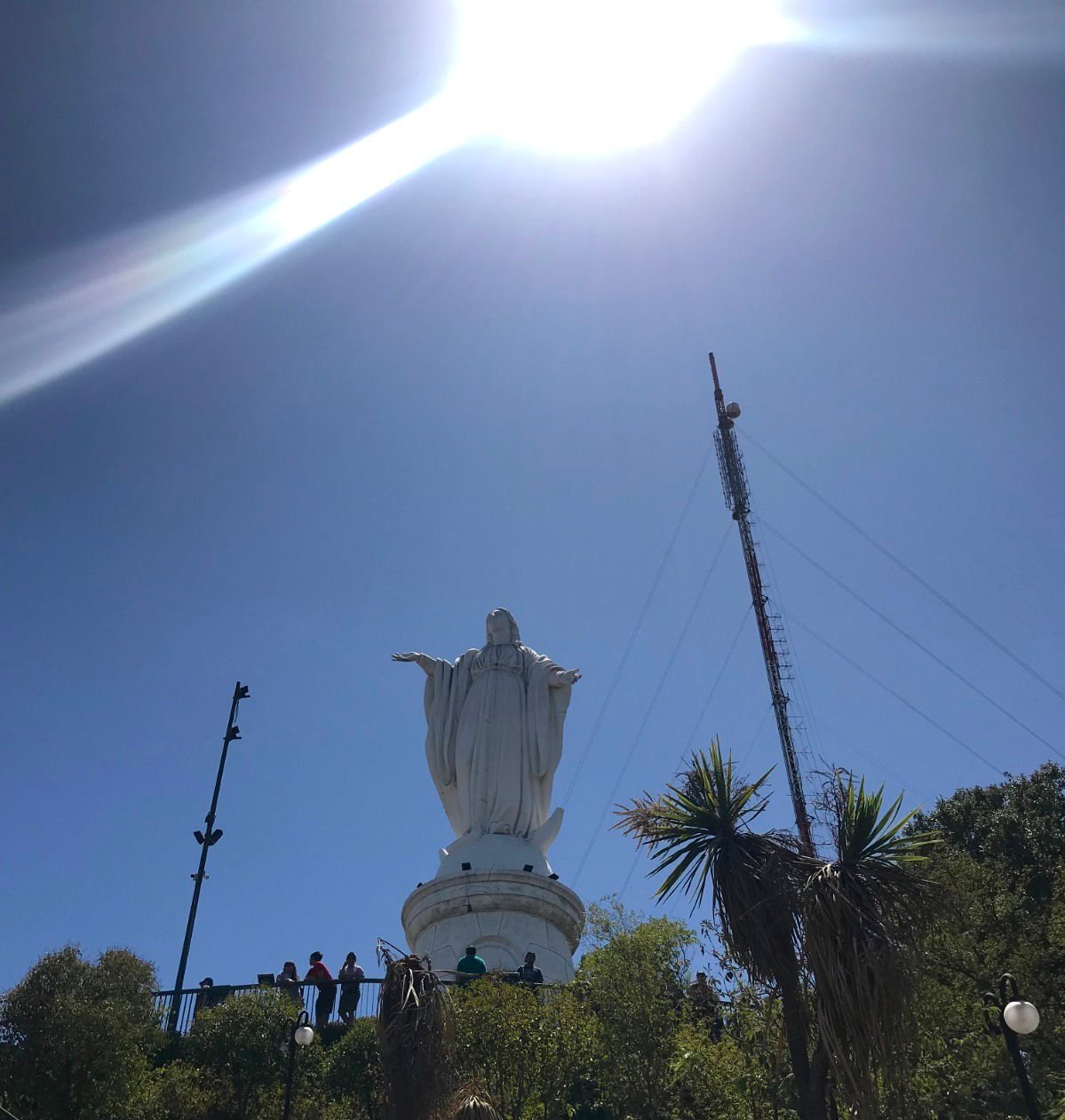
All photos, unless otherwise credited, by the author.



